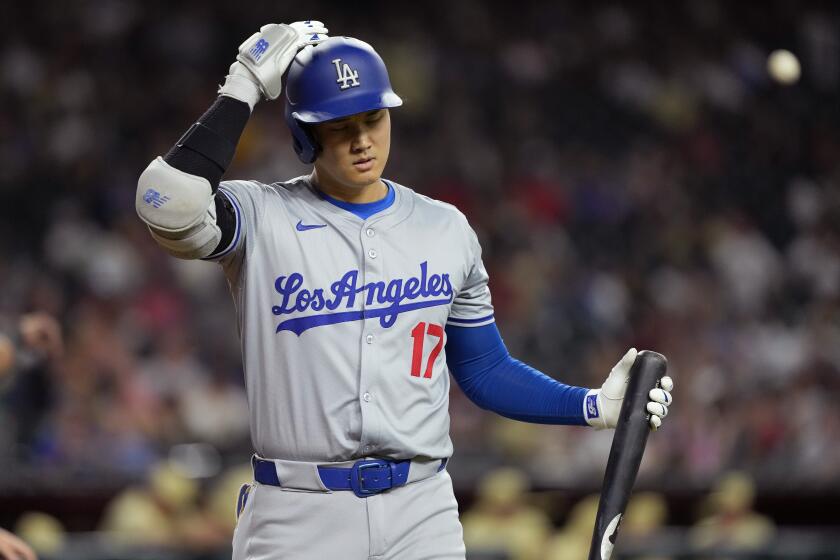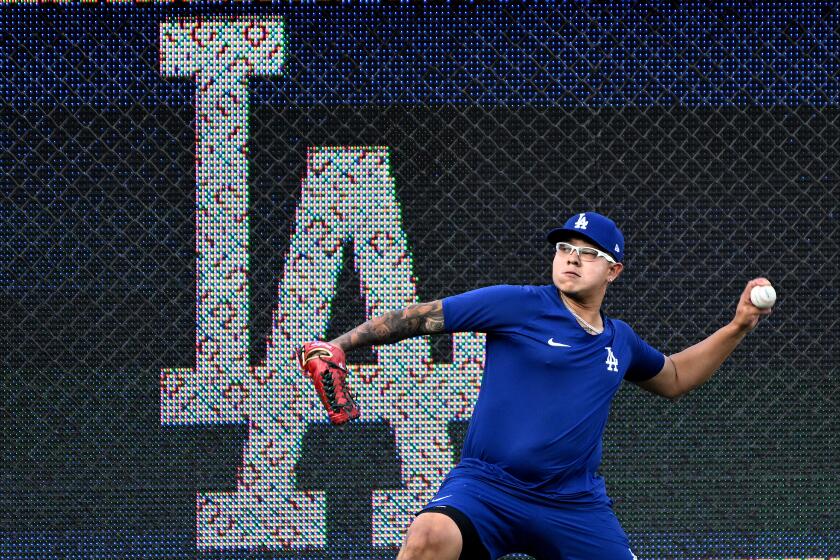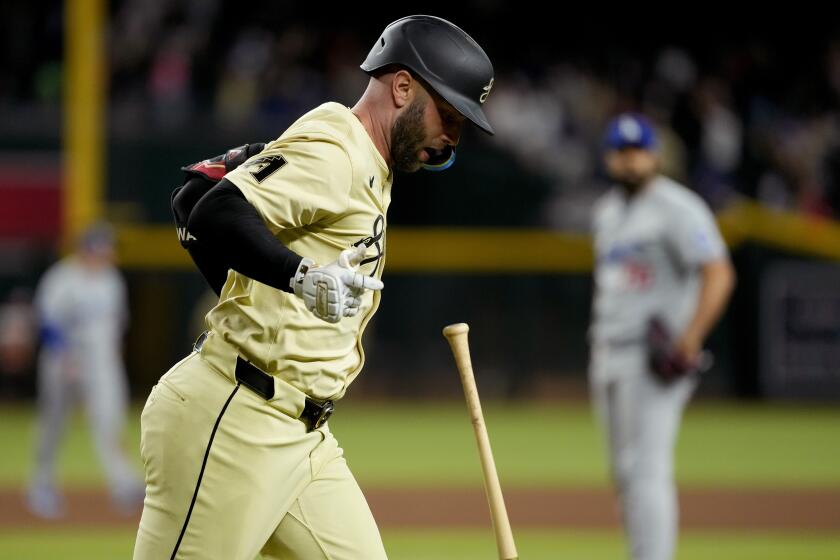Dodgers Punished for Role in Signing Cuban Players
Concluding a lengthy investigation, the commissioner’s office has granted free agency to two Dodger minor leaguers who had accused the team of holding secret tryouts in Cuba and arranging their defections in violation of major league rules. The Dodgers have also been fined, a baseball official confirmed, but it was unclear whether the club violated a U.S. trade embargo that prohibits American companies from conducting business in the Communist-ruled country.
Dodger officials had no comment except to release a statement that said they would abide by the unprecedented decision.
Juan Carlos Diaz, a first baseman, and Josue Perez, an outfielder, can begin talking with interested clubs immediately but cannot negotiate a contract until July 2. The Dodgers are prohibited from re-signing them.
Steve Schneider, who represents the players in partnership with Gus Dominguez, said Monday that he has been contacted by several clubs already.
Said Dominguez: “Arrogance led the Dodgers to put themselves above the game. There are rules they clearly violated.”
Diaz, who was hitting .303 with nine homers and 52 runs batted in at double-A San Antonio after hitting a total of 30 homers at the Class A and double A level last year, and Perez, hitting .279 at Class-A Vero Beach, will discuss their situation at a news conference in Los Angeles today.
Their case marks the first time a team has been caught scouting in Cuba, a gold mine of talent still largely untapped despite numerous defections in recent years.
Among Cuban players currently in the major leagues are Orlando Hernandez, Livan Hernandez, Rey Ordonez, Vladimir Nunez and Rolando Arrojo.
According to previous interviews with The Times and Boston Globe, Diaz and Perez said that Pablo Peguero, a longtime Dodger scout who now heads the club’s Dominican academy, entered Cuba as a tourist in 1996 and ‘97, videotaped secret tryouts on the outskirts of Havana and helped them obtain visas by having women pose as their girlfriends and tell Cuban officials that they wanted to take the players to visit relatives in the Dominican.
Once there, according to Diaz and Perez, the women disappeared and Peguero arranged for their residency at the Dodger academy and told them they should tell people they came to the Dominican on their own.
Diaz received $65,000 to sign and Perez $40,000, but neither player had representation and there was no open tryout camp at which all clubs can send scouts, which is required by major league rules for players who have defected from a closed country.
Why did the players wait so long--three years in the case of Diaz--before filing a grievance?
“I don’t think they understood the rules violation and they told us that they didn’t want to lie anymore about being from the Dominican when in fact they were from Cuba,” Schneider said.
The Dodger media guide lists both players as residents of the Dominican but also lists both as having been born in Cuba.
A source familiar with the situation said the Dodgers did not intend to dismiss Peguero, who along with Ralph Avila, the club’s senior vice president in the Dominican, initially denied the players’ allegations.
More to Read
Are you a true-blue fan?
Get our Dodgers Dugout newsletter for insights, news and much more.
You may occasionally receive promotional content from the Los Angeles Times.






